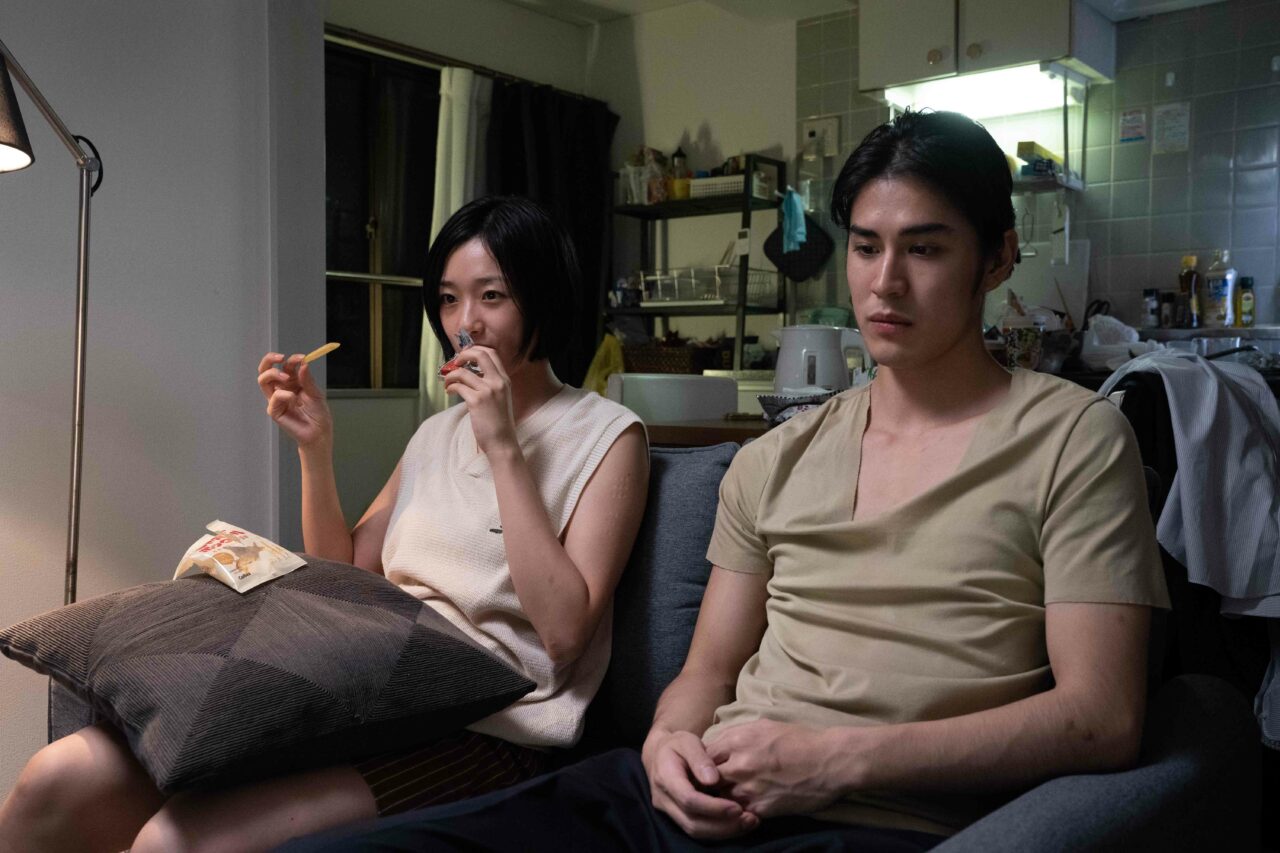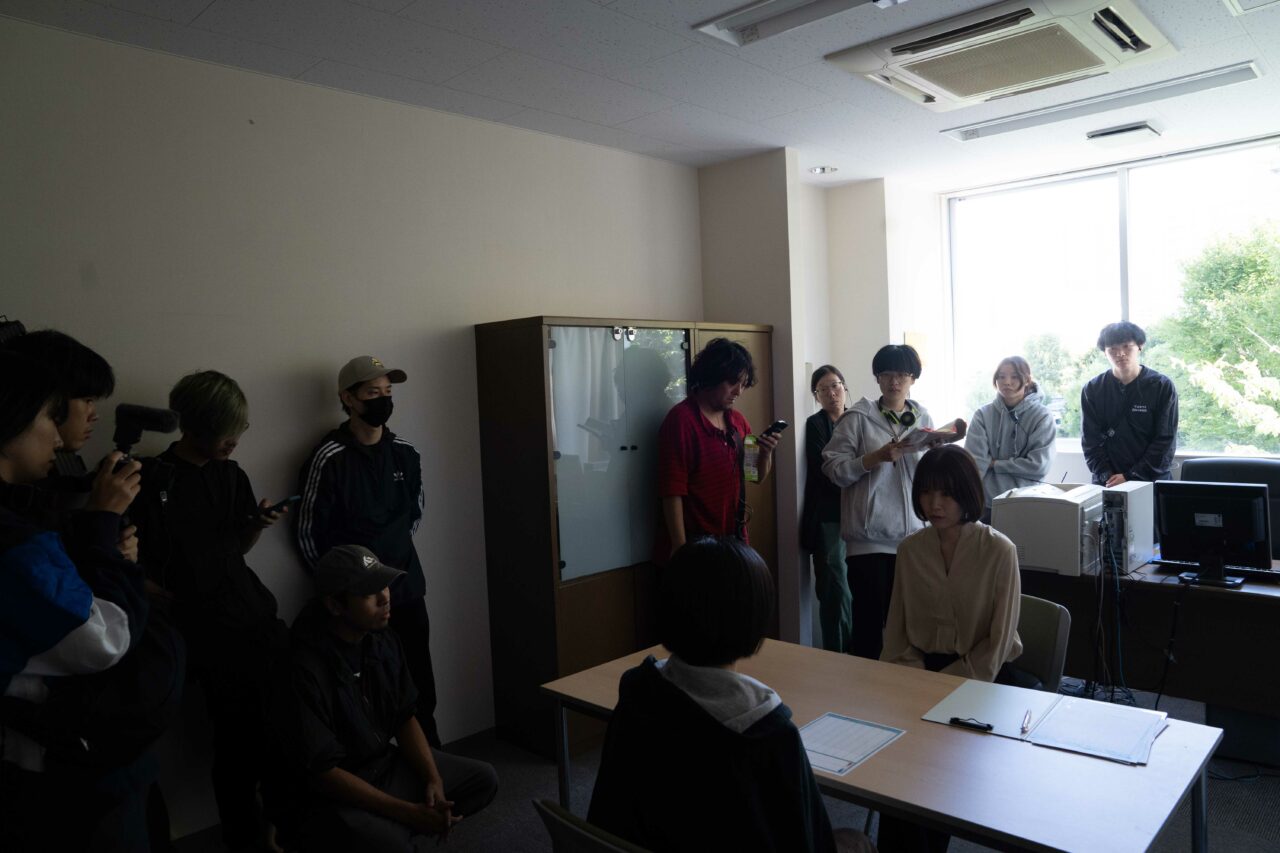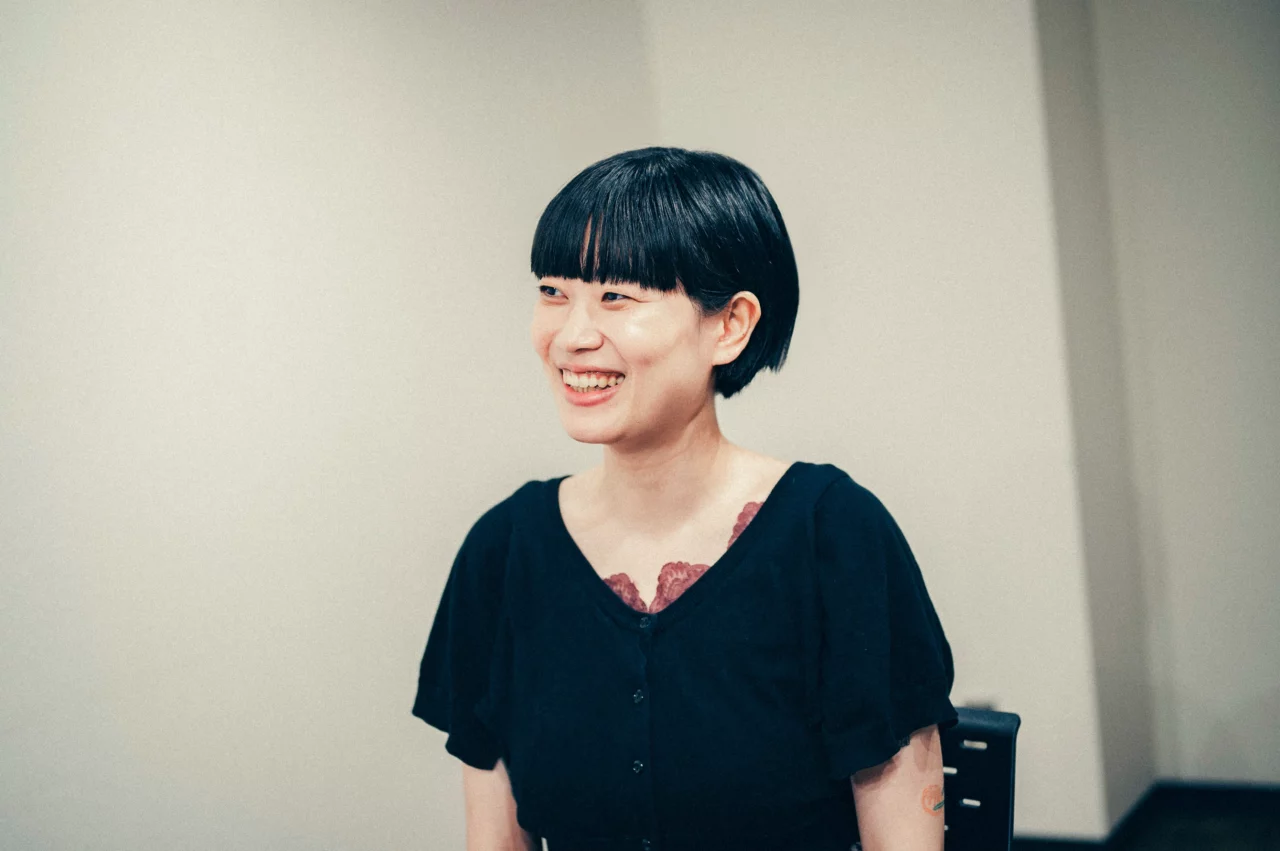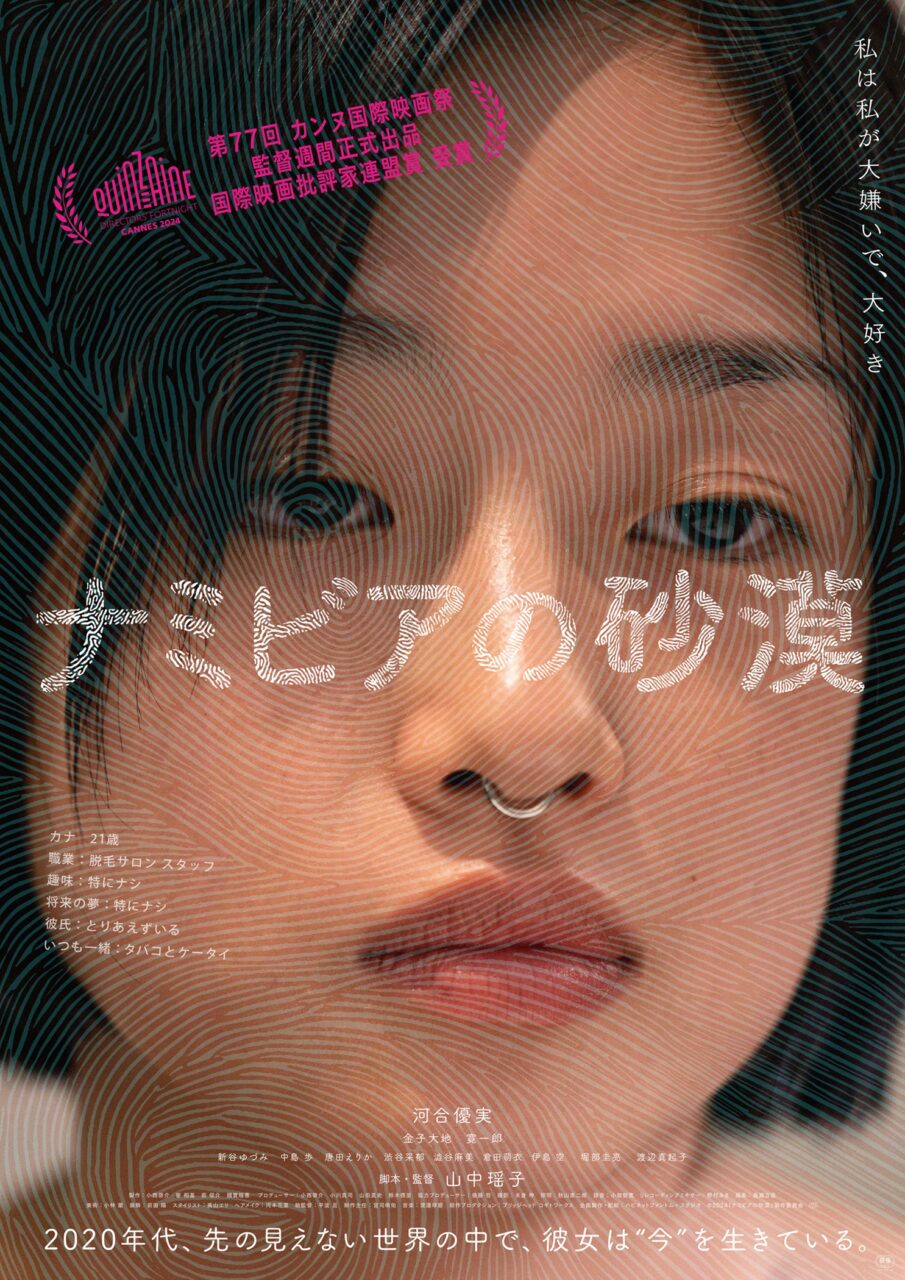INDEX
Discrepancies Between Personal Feelings and External Behavior
It’s evident that Kana grapples with managing the discrepancies within herself, which is also reflected in her erratic way of walking.
Yamanaka: Youth often comes with an overflow of energy. Even though you have physical vitality, you may struggle with controlling it and knowing how to direct it effectively. That’s why I aimed to make Kana’s movements feel as though she’s trying to manage her limbs that seem almost too long.
This disconnect between outward actions and true feelings is also apparent in Honda (Kanichiro). People over 50 might find Honda’s character quite startling, with reactions like, “What’s up with that portrayal of a man?” His approach to Kana might come across as somewhat fragile to some.

Yamanaka: But Honda’s character is a result of his relationship with Kana; he might exhibit more conventional behaviors in other contexts, like at work. It’s not about which version of Honda is the “real” one—everyone has different facets to their personality.
Regarding these discrepancies, as you mentioned earlier, the film also explores the aspect of “re-evaluating oneself” alongside societal injustices.
Yamanaka: Yes, that aspect is influenced by my own experiences. In the counseling scenes depicted in the film, I used the term “thought patterns” to explain certain behaviors. I realized in my late twenties that I also had tendencies for certain “thought patterns.”
Once I became aware of these tendencies, things started to improve. For instance, I used to have a habit of preemptively predicting what others were thinking based on their words and behavior. I learned that it’s better not to waste energy trying to guess other people’s true feelings because it’s impossible to know for sure. By being conscious of this and avoiding it, I found it much easier to communicate with others and felt less exhausted.

You’ve learned to express your own feelings openly rather than constantly adjusting your behavior to match others’ expectations.
Yamanaka: Exactly. I believe it’s beneficial to explore different ways of thinking. However, I don’t agree with the idea that “instead of criticizing the world’s flaws, we should focus solely on changing ourselves.” I think some of my own thought patterns have been influenced by the world’s injustices.
Your past struggles might be what makes your work so impactful for the audience.
Yamanaka: Being able to view my past experiences with some distance has helped me in working on this project. I learned a lot during the process, and I doubt I could have completed it while still immersed in that struggle.

Desert of Namibia

Friday, September 6, 2024
Director/Screenplay: Yoko Yamanaka
Cast: Yumi Kawai, Daichi Kaneko, Kanichiro, Yuzumi Shintani, Ayumi Nakajima, Erika Karata, Ayaka Shibutani, Asami Shibuya, Moe Kurata, Ku Ishima, Keisuke Horibe, Makiko Watanabe
Producers: Keisuke Konishi, Shinji Ogawa, Masashi Yamada, Tokuji Suzuki
Production: Bridgehead, Cogito Works
Production Manager/Distribution: Happinet Phantom Studio
Production: “The Namibian Desert” Production Committee
©2024 “The Desert of Namibia” Production Committee
Official website: happinet-phantom.com/namibia-movie
Official X (former Twitter): @namibia_movie

























